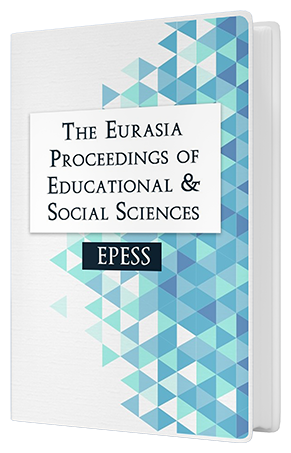Development of Pre-service Middle School Mathematics Teachers’ Skills in Interpretation of Student Thinking in the Context of Lesson Study
Keywords:
Teachers' knowledge of students, Discussion skills, Lesson studyAbstract
Mathematics teachers’ knowledge of students’ thinking has an important effect on the teaching-learning process (Cai, Ding & Wang, 2014; Clarkson & Presmeg, 2008). Teachers who understand student thinking sufficiently can interpret student thinking effectively and can anticipate student misconceptions, difficulties, and errors. Furthermore, they can overcome these challenges with appropriate explanations (An, Kulm & Wu, 2004; Ball, Thames & Phelps, 2008). The research revealed, however, that teachers/pre-service teachers have difficulty interpreting student thinking (Crepso, 2000; 2003). This led to the conclusion that pre-service teachers need to develop skills in understanding and interpreting the student perspective (Hiebert, Morris & Glass 2003). The scope of this study was to improve pre-service middle school mathematics teachers’ knowledge and interpretation of student thinking through lesson study. Three senior pre-service teachers participated in this study. Pre-service teachers implemented three practice lesson study cycles in a real classroom. Data was obtained from documents, video recordings, observations, field notes, and reflective papers. In order to analyze data, content analysis was used. Results showed that the pre-service teachers had some challenges knowing and interpreting student thinking at the beginning of the study. As lesson study cycles proceeded, pre-service teachers began to take into account student thinking, design and implement lesson plans according to students’ needs and difficulties.Downloads
Published
Issue
Section
License
Copyright (c) 2019 The Eurasia Proceedings of Educational and Social Sciences

This work is licensed under a Creative Commons Attribution-NonCommercial-ShareAlike 4.0 International License.
The articles may be used for research, teaching, and private study purposes. Any substantial or systematic reproduction, redistribution, reselling, loan, sub-licensing, systematic supply, or distribution in any form to anyone is expressly forbidden. Authors alone are responsible for the contents of their articles. The journal owns the copyright of the articles. The publisher shall not be liable for any loss, actions, claims, proceedings, demand, or costs or damages whatsoever or howsoever caused arising directly or indirectly in connection with or arising out of the use of the research material. All authors are requested to disclose any actual or potential conflict of interest including any financial, personal or other relationships with other people or organizations regarding the submitted work.




